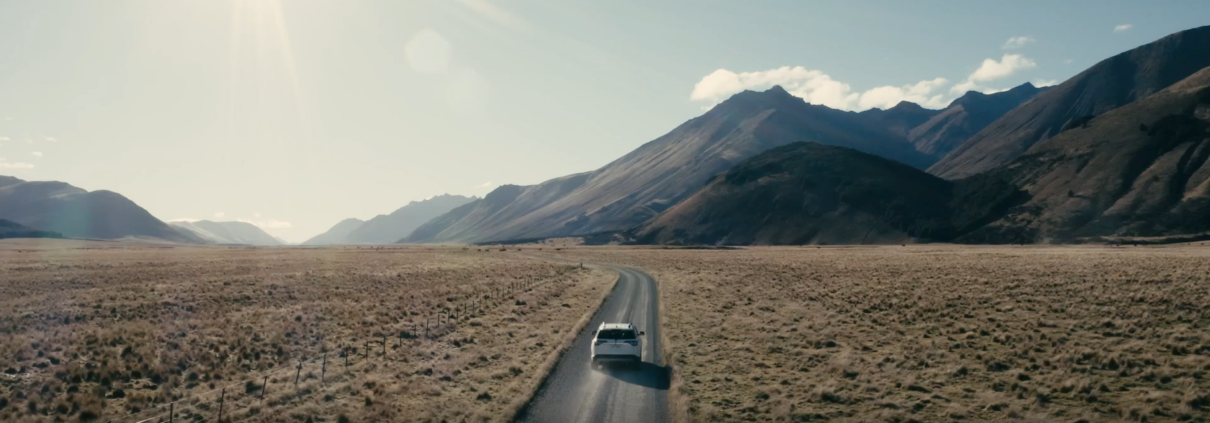Brief Bites, 25th October

In this edition:
- Wrap up of the 2021 Roadshow
- Pricing improvements
- SILERE Alpine Origin Merino launched in 350 Tesco UK stores
- Decarbonisation projects
- NZ-UK trade deal
- Global Market Update
2021 Roadshow
We have now wrapped up the 2021 virtual roadshow. Many thanks to those who tuned in for one of the five online meetings. Although it was disappointing we couldn’t meet you in person, the virtual meetings were a great opportunity for you to give us feedback on what is working well, what more we can do to support you and any challenges and opportunities you see.
For those who missed the roadshow, it was an informative and engaging update on both the year that has been and the exciting things that are coming up over the next 12 months.
The online meetings also meant the wider management team could attend all sessions and provide detailed responses to questions about our people, sales, manufacturing and technology.
Pleasingly, our trading profit this year will be an increase on the previous year as we continue to capture more value from the market and effectively run our plant network. We have continued to invest in our plants and markets for the long-term, which aligns with the intergenerational approach of our farming families.
This year, our supply chains have been greatly disrupted by the pandemic and this has impacted our inventory levels. Our plants have continued to improve year on year and we showed farmers the shifts in our costs curves.
We are continue to invest in differentiated programmes to provide our farmers with opportunities to receive premiums for high quality products.
We are also continuing our focus on health and safety, which means we are getting our people home safely every day, with less injuries and incidents year on year.
The capability and dedication of our people has shone through this year with many people going above and beyond to look after farmers, their work mates and the company.
For farmers, the strong livestock prices are continuing, and looking forward, we anticipate strong demand and prices across all species.
Pricing improvements
As a 100 per cent farmer-owned co-operative, we are committed to providing our farmers with fair and transparent pricing. We have introduced a range of initiatives to help ensure our livestock pricing is better aligned with our co-operative principles.
1. We have increased the number of Minimum Price Contracts we offer. These provide suppliers with higher levels of pricing certainty to manage risk and plan farming activities. With these contracts, farmers retain the potential to enjoy schedule upside and mean the co-operative has improved supply visibility. They also ensure everyone gets paid the same price because those who sign MPCs receive no volume payments, flexis, or other payments — everyone gets paid the same price. At times, we have 70 per cent of our supply on these contracts
2. We are changing the way we manage volume payments. In future, these payments will be made in arrears post supply of livestock
3. We have increased the number of premium programmes, which reward suppliers with an attractive market-backed price premium above schedule and provide the business with improved supply visibility. They are limited to direct supply only
4. We have improved the management of our space allocation programme during peak periods to recognise loyalty – platinum, then gold, followed by other shareholders. Farmers will recall that during the COVID-19 lockdowns, we had some people try and jump the queue. We now have daily reporting of shareholder versus non-shareholder supply so we can monitor activity. Whilst these changes don’t eliminate the possibility of queue jumping, it is greatly reduced and a rare occurrence
5. With flexi payments, we run a weekly review process to identify any policy exceedances and this is reported to the board every month. We have also ensured our flexi payments have a supplementary tool to have them weighted towards small farmers. We are now making a change to ensure fairness to all shareholders. Livestock for the F22 year that receive a flexi will not be eligible for profit distribution to prevent double dipping and ensure equality amongst suppliers
6. We will also be introducing a peak supply premium and will provide more detail at the time of launch.
These changes are about creating more opportunities for famers to maximise the prices they are paid and to so in a manner that is equitable for all shareholders. We acknowledge in doing so it also creates a challenge around increased price complexity and we need to find a path to solve this issue.
Silere Alpine Origin Merino launched in 350 Tesco UK stores
We are pleased to announce leading UK supermarket Tesco has launched a range of SILERE Alpine Origin Lamb.
The SILERE range, which includes boneless lamb leg and boneless rump joints, rack and loins, has initially been launched in 350 stores with a premium shopper profile. These are metro stores in cities and towns in affluent areas.
Tesco was impressed with the quality, distinctive flavour and texture profile of SILERE and the high- country story. It is great to see Tesco looking to enhance its lamb category, creating more ‘foodie’ values and promoting a New Zealand product as a premium lamb offering. This also gives us the opportunity to target SILERE as a premium lamb solution to a high percentage of UK lamb buyers.
Tesco is the UK’s leading supermarket chain, with approximately 4,000 stores, the largest UK consumer coverage and accounts for 27 per cent of the UK grocery share. Twenty two per cent of UK shoppers buy their lamb from Tesco.
Decarbonisation projects
Alliance Group is committed to reducing our carbon footprint and in 2019 set a goal of ending the
use of coal at our plants within 10 years.
With support from the Government’s GIDI fund (Government Investment in Decarbonising Industry) fund, we are investing in decarbonisation projects at our Lorneville, Mataura and Smithfield plants.
An electrode boiler to reduce the use of existing coal fired boilers will be installed at Lorneville, saving 11,739 tonnes of carbon per annum.
We will also replace the existing main coal fired boiler at Mataura with a high temperature heat pump system and small diesel boiler used only for peaking, saving 6,401 tonnes of carbon per annum and significantly improving the air quality for local residents.
In the third project, Alliance will capture waste heat from the refrigeration plant at Smithfield to replace coal use for process heat, saving 3,811 tonnes of carbon per annum.
The emissions savings from the decarbonisation projects represent the equivalent of taking more than 8,000 average sized passenger cars off the road.
This marks another milestone in our Energy Transition Pathway developed in collaboration with Energy Efficiency Conservation Authority (EECA) to decarbonise our seven processing facilities and secure a low emissions future for the co-operative.
NZ-UK trade deal
The Agreement in Principle (AIP) signed between New Zealand and the United Kingdom is a significant boost for Alliance Group and NZ’s red meat sector.
Key features of the AIP include improved access for high-quality New Zealand beef and more certainty for sheepmeat exports. Our red meat sector has not had quota-free access to the British market since the UK joined the European Union in 1973.
Following the UK leaving the EU, New Zealand’s 1300 tonne beef quota was split between the UK and the EU, leaving New Zealand with only 454 tonnes of beef access into the UK. Outside of this quota, New Zealand beef exports attracted tariffs of up to 70 percent, meaning virtually no out of quota trade occurred.
The Free Trade Agreement once signed and ratified, will result in New Zealand beef and sheepmeat
exports initially entering the United Kingdom under a tariff-rate quota (TRQ) regime. New Zealand will be permitted to gradually increase its export tonnages over the 10-year transition period, while the quota will eventually be completely phased out.
That means products within the TRQ amounts will enter tariff-free. While there will be no TRQ regime after a decade, a volume safeguard provision will apply to the end of year 15, beyond which no safeguards will apply.
Co-products such as processed meats, pet food, and offals will have tariffs eliminated at entry into force, meaning further value can be added to the carcass.
Update from our global markets
We continue to keep a close eye on the high NZ-US foreign exchange rate.
Lamb
Christmas chilled production for the UK and EU is virtually complete with slower transit times shortening the production window. Demand in these markets remains strong and several retailers will be using airfreight volumes to substitute sea freight shortages. The foodservice sector continues to improve as COVID-19 restrictions are lifted. There is some concern about a fourth wave in the UK, which will need to be monitored.
North America continues to perform in excess of pre-COVID-19 levels in volume and price for both retail and foodservice. The inventory build for the Chinese New Year (CNY) is underpinning a favorable market in China. Demand in the Middle East is firm but the market is hesitant to purchase volume at present market levels.

Mutton
The global market remains strong with demand exceeding supply. We are finalising annual programs with our customers in North America, China, wider Asia, and the EU. Forward pricing is firm on the
anticipation of lower supplies from New Zealand, but also Australia as they continue flock re-building.
Venison
Game season chilled production sea freight concludes next week with air freight planned for November and early December to supplement demand. Game season consumption is expected to increase with competing proteins such as wild boar, roe deer, and pheasants in short supply. In-market frozen inventories are now clear with buyer confidence returning and demand improving.
Retail programs in North America and China are supporting improved returns and helping us reduce our exposure to the traditional EU markets. Supply chain concerns continue to affect our ability to fulfill customers’ demand requirements.
Beef
Global markets have firmed with China leading the way. Chinese wholesale market prices for beef
have increased as the window for shipping beef for arrival prior to Chinese New Year closes.
There are multiple issues with Brazilian beef including product not being allowed entry to China due to confusion around the dates for voluntary closure. The Brazilian government is working with China on the resumption of the beef trade, but no re-start date has been confirmed. The Brazilian government announced they will suspend production for China for another week.
Chinese importers remain positive as they position their inventories leading into the Chinese New Year.
The US market is coming back to life with increased inquiries from US importers. With China pushing hard on beef cuts/grinding meat, US importers’ share of November and December beef production will be reduced as they buy minimal amounts to supplement their inventories. We are well sold out to December, with the focus now on forwarding orders for the bull season. Australia has used 25% of its US quota with NZ having used 66% of its US quota.

Co-products/Specialty Ingredients & Materials
The pelt market is rebounding off the very low base as Europe struggles with shipping into Asia to a greater extent than New Zealand. Alliance is seeing low-grade material returns increase and high-grade prices also significantly strengthen.
This is reducing the number of skins we compost. Bovine hides are also seeing strong demand and better prices for Alliance. Demand for pet food items is at an all-time high as pet ownership increases, livestock numbers in New Zealand reduce, and the back of a strengthening meat market.

Warm Regards

David Surveyor – Chief Executive
Follow us on Instagram:

For more information about Alliance, visit alliance.co.nz
You can update your preferences or unsubscribe from this list.







